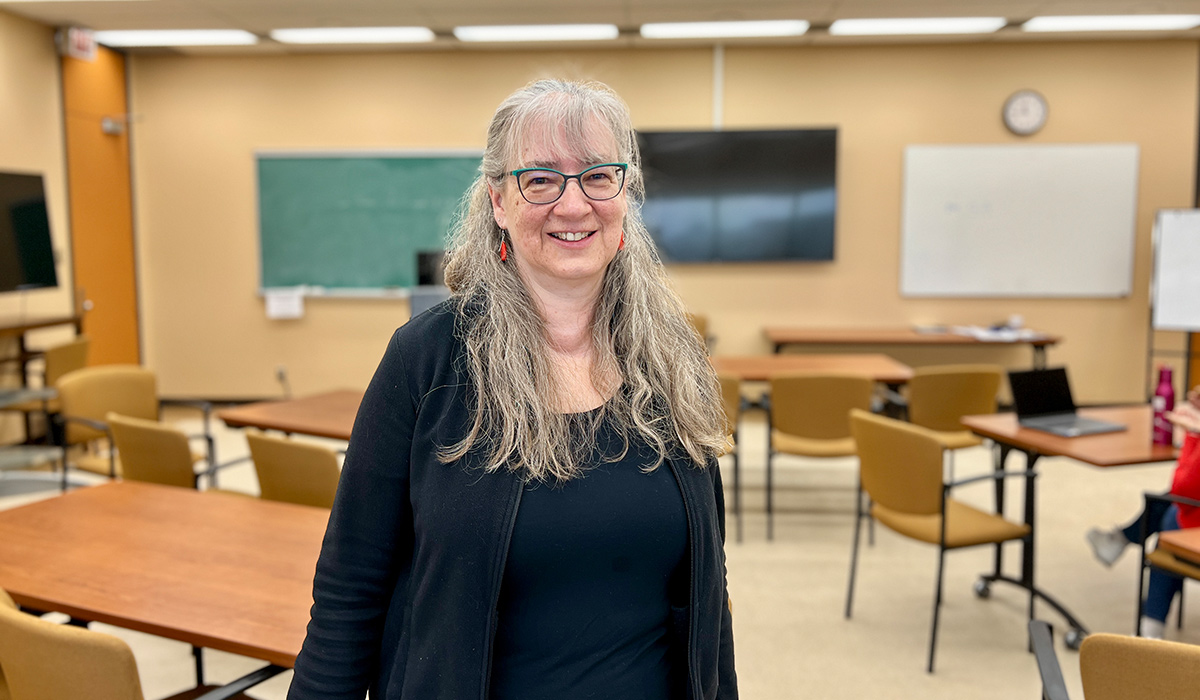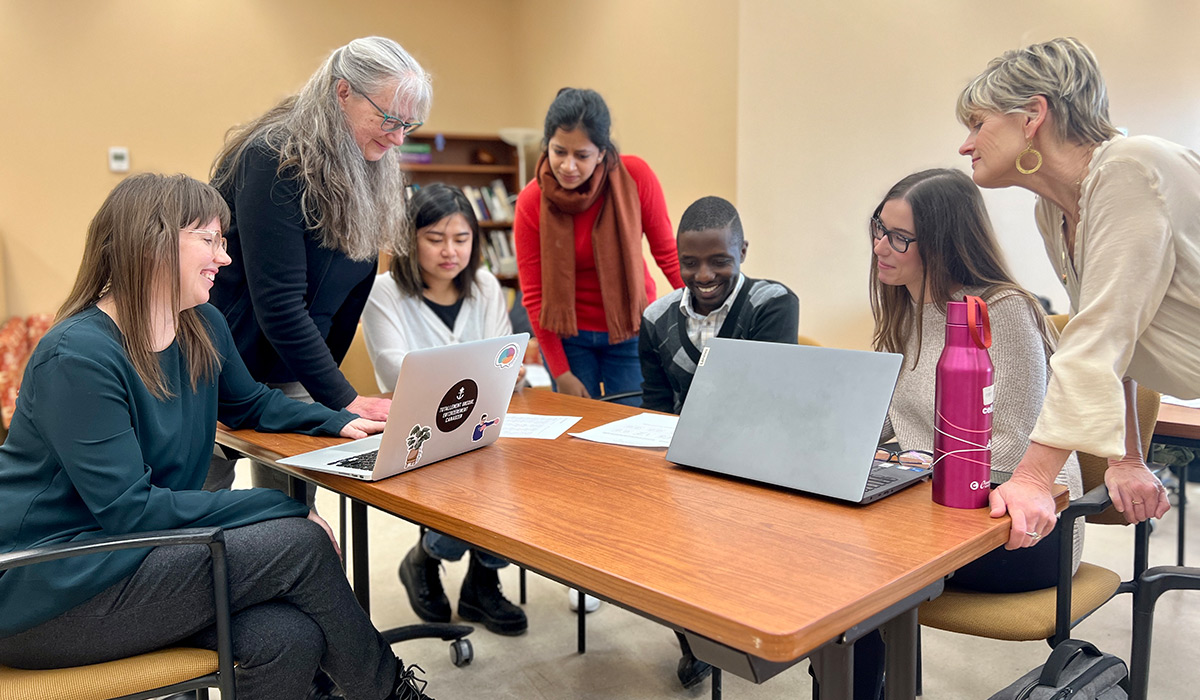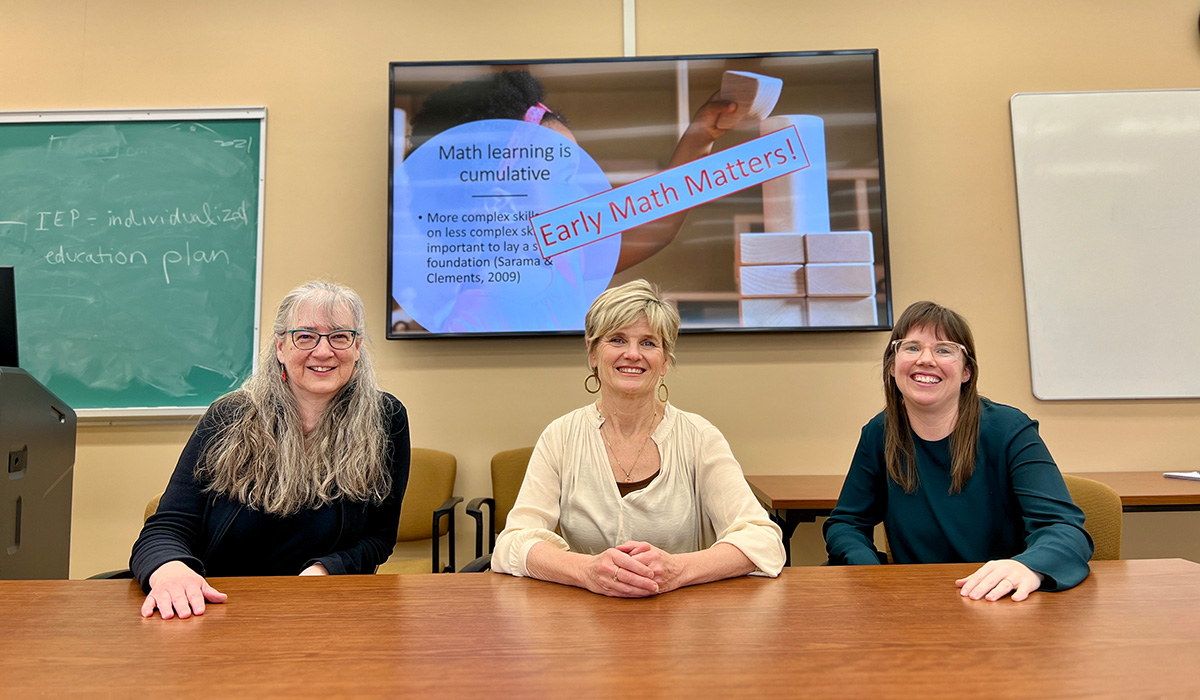Which is why Carleton University cognitive science researchers Jo-Anne LeFevre and Heather Douglas have developed a screening tool to help teachers and school boards quickly see which kids are having a hard time with math, so the appropriate supports can be deployed to help them succeed.

“There’s a perception that some people just can’t do math,” says LeFevre, the director of Carleton’s Math Lab, who has been doing research on cognitive development and numeracy for more than 40 years. “Some people get anxious about math, which is unfortunate, because we use it all the time.
“How you’re doing in math in kindergarten will predict how you’ll do in grade six, and students who struggle may drop it once they get to high school. Math may not come easily to everybody, but neither does reading. We send children to school to learn things they won’t pick up naturally through normal everyday experiences. So schools have a responsibility to help children succeed at both reading and math.”
User Friendly and Rapid Results
A couple of years ago, LeFevre and Douglas were contacted by Alberta’s Ministry of Education. The province was looking for somebody to develop a numeracy screener — one that teachers could use with children and receive quick feedback — and had heard about their expertise in this area.
User friendliness and rapid results are important in a tool like this, explains LeFevre, because teachers are busy and often have crowded classrooms but need timely information about whether their students are prepared for learning.
The screening tool they created, which gauges the foundational numeracy skills of children, can be administered in about 20 to 25 minutes. There are different levels, from kindergarten through grade four, and it’s typically done individually for the youngest students and in small groups for older kids.

For kindergarten, it features the basics, like counting the number of circles on a page, with higher grades assigned increasingly complex tasks, such as number relations (comparing and ordering number symbols) and number operations (addition, subtraction, multiplication).
“A teacher can see right away how a student is responding,” says LeFevre.
“It’s clear which concepts the student doesn’t understand.”
Alberta Education provides the screener to Alberta school authorities to use, free of charge and at their discretion, to help identify students who could benefit from targetted, short-term support.
Levelling the Playing Field for All Students to Learn Math
On the heels of this work, LeFevre, Douglas and their Carleton colleague Rebecca Merkley, along with researchers from several other Canadian universities, received a grant to further develop partnerships around early numeracy screening.
The project’s goal is to engage with school districts across Canada to develop, test and disseminate tools to support mathematical learning in kindergarten through grade three. AIM (Assessment in Mathematics) Partnership researchers are now collaborating with educators in 13 school districts in Ontario, Alberta, Quebec and Manitoba.

Beyond individual students, schools and school districts, these types of tools can help parse broader trends, including the impact of the pandemic on math abilities.
Informal education at home, such as playing numerical board games and other activities involving quantities and spatial skills, may help children as they learn math. But not every family has the same capacity for these activities, says LeFevre, and parents shouldn’t be expected to take on this role. That’s why screening tools, which can be used with all students, are important for ensuring equity in access to educational resources.
One of the purposes of public education is to the “level the playing field,” to give every student the same opportunity.
“We want to use evidence-based tools to make sure that every child has the appropriate supports,” says LeFevre.
“It’s really striking to me from this research how much everyone cares. Whether it’s a teacher, a math consultant, a superintendent, a researcher or someone in an education ministry, everybody I work with really wants kids to be able to learn math, enjoy math, make progress and be prepared to use math throughout their lives.”